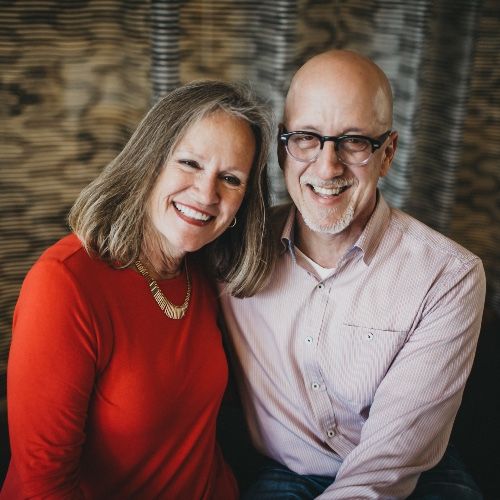Speaking Up to Prevent Women’s Cancers, with Gynecologic Oncologist Dr. Valena Wright
On this episode of WE Have Cancer, womens’ cancer surgeon Dr. Valena Wright, MD chats with Lee about her decades of experience treating gynecologic cancers, and the many preventative measures women may not know about. From symptoms of ovarian cancer to the power of positivity to the benefits of music therapy, Dr. Wright shares her professional advice to empower women to be prepared and informed when it comes to their health and well-being.
Guest Biography:
Dr. Valena Wright is a board-certified gynecologic oncologist and surgeon with more than 25 years of clinical practice experience in the realm of women’s health. When Valena lost her older sister to Stage IC Ovarian Cancer, she knew she wanted to start advocating even more about women’s cancer prevention. Her new book, It’s Time You Knew: The Power of Your Choices to Prevent Women’s Cancer is available now.
Table of Contents:
- It's All in the Family
Valena's Grandmother was one of the first public health nurses on Prince Edward Island, at a time when not many women had access to such an education. Her trailblazing success greatly inspired Valena to enter the medical field as well.
- "Not Your Mother's Hysterectomy"
Valena says she thinks her grandmother would be astonished by today’s technology, and by how surgery is performed today; but Valena can also imagine her shaking her finger at today's medical practitioners, because public health isn’t what it should be.
- The Most Common Women's Cancer
The most common cancer Dr. Wright treats as a gynecologic oncologist is uterine cancer, which arises in the lining of the uterus and usually occurs after menopause, but not always. Sometimes pre-menopausal women dismiss the symptoms of abnormal bleeding that can point to uterine cancer.
- What are the Symptoms of Ovarian Cancer?
Ovarian Cancer symptoms can be subtle, but might include bloating, feeling full even if you haven’t eaten, fatigue, increased urinary frequency. A pelvic mass can grow quite large over time, even if you haven't noticed any subtle symptoms.
- Should You Rely on Family History?
About 20% of ovarian cancers can be hereditary, but family history is not always reliable without genetic testing. After her sister’s ovarian cancer diagnosis, Valena had genetic testing done, and elected to have risk-reducing surgery.
- Diet, Exercise, and What Else?
Diseases can affect women in different ways than men; heart disease is the perfect example. Valena strongly believes it's important to be able to speak up and ask for what you need, and to understand the gynecologic anatomy. And, since many women are frequently multitasking, prioritizing a full night's sleep is extremely important for well-being, mental health, and stress.
- Integrated Medicine for Women's Wellbeing
Integrated medicine can help with the mind-to-body relationship in patients. It’s important to remain positive because the brain looks for what we focus on the most, which is critically important for cancer patients. Valena reminds listeners, "there is always hope."
- The Rejuvenating Power of Music
Music lights up our brains and neural pathways in unique ways. Music therapy can be very powerful. Athletes use music to train and visualize, surgeons use music to focus, and patients can use music too.
- How Can Women take the Best Precautions for their Wellbeing?
Women should be aware of the screenings available to them, the importance of nutrition, family history, knowing their risk and getting genetic testing. Recognize their choices and putting them into the context of their daily lives. Valena wants women to have their best health, so that they can truly enjoy their lives.
Links mentioned in the show:
Dr. Wright's Book: It's Time You Knew
Dr. Wright's Website: Valena Wright MD
Support the Child of the Month; Benny - https://wehavecancershow.com/benny
Subscribe to the “WE Have Cancer” Podcast
Follow WE Have Cancer on Social Media:
Like our Facebook page
Join our private Facebook group
Follow us on Twitter
Follow us on Instagram


